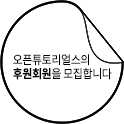Lesson3 격식체 formal style. 합니다 style.
하옵나이다, 하오, 해라, 하게 ... and 합니다 styles are formal style. They are used as written languague or in public situation. For example Laws, Textbooks, Novels, in the Army, at the Important interview or meeting, to your boss or king.
In the Kdrama, the person who said "감사합니다." may be a soldier, or work for politicis or business. They use strict and formal style.
합니다 style examples (Commonly used)
모든 인간은 자유롭고 평등하다. Every Human is free and equal. from human right
- 모든 = every, all, whole
- 자유 = freedom. 자유롭다 = be free
- 평등 = equlity, equal. 평등하다 = be equal
- ~하고 = ~ and
- ~하다 = 해요 = be ~
3장에서는 미분 방정식의 풀이를 배운다. At chapter 3, we will learn the solution of differential equation. from Math for Phyics textbook
- 에서 = at
- 풀이 = solution. 풀다 = 풀어요 = solve
- 배운다 = 배워요's 합니다 style = learn
(그 이유는) 제가 별을 사랑하기 때문입니다. the reason is because I love Stela. from a novel I wrote he use 해요style to speak, but write in 합니다style.
- 이유 = reason
- 제가 = 저 + ~가 = I. But recently koreans often write and speak as "저가"
- ~하기 때문입니다. = ~하기 때문이에요 = be because
- 입니다 <= 이다 = 이에요's 합니다 style.
Soldiers : 우리는 무적 태풍 용사다! 우리는 언제나 이긴다! We are the invicible typhoon warriors! We always win! from the korean army
- 우리 : we
- 언제나 : always
- 이기다 = 이겨요 = win
저는 서울대를 졸업하였습니다. I graduated from seoul university. from job interview
- 서울대 = 서울대학교 = Seoul National University. The Number One. Every korean student's Dream.
- 대학교 = university
- 졸업하다 = 졸업해요 = I graduate, I will graduate
- 졸업하였다 = 졸업하였어요 = I graduated (past tense)
- 습니다 or ㅂ니다. = 다 is changed to express a state or fact. Koreans also use it in formal speaking.
- Absurd 저는 서울대를 졸업하였다.
고객님들에게 정말 감사드립니다. We really thank to our customers. from a company public event
- ~에게 = to ~
- 정말 = really
- 감사드립니다. <= 감사하다's more honorific + ㅂ니다 <= 감사해요's formal form <= Thanks
- 드리다 / 드려요 <= 주다 / 주어요's more hornoriffic = give
- Absurd 고객님들에게 정말 감사드렸다.
박 팀장, 아직도 원인을 못 찾았습니까? Team leader Park, have you found the cause yet? (At the formal style company. by young superior to older inferior)
- 원인 = cause, 결과 = effect
- 찾다 <= 찾아요's formal form = find, search
- 찼았습니까? <= 찾았습니다's question form. <= 찾았다 + 습니다 = 찾았어요's formal form = have found, found
- Korean commonly use 습니까? for question.
"안녕하세요. 저는 김태희입니다. 혹시 첸 님이십니까? 만나 뵙게 되어서 영광입니다. 이건 제 명함입니다. 여기 앉으십시오"
Hello. I am taehee kim. Are you Ms.Chen? It's my honor to meet you. This is my card. Please, sit here.
(If I meet someone for important business, in very formal situation)
- 입니다. <= 이다 +ㅂ니다 = 이에요's formal style.
- Absurd 만나 뵙게 되어서 영광이다.
- 이십니까? <= 입니까? + -시- <= 입니다's question form
- -시- is used as more honorific
- ~해서 영광이에요 = It is honor(glory) to~
- 만나 뵙게 되다 = 뵈어요's honoriffic
- 뵙다. 뵈어요 = 만나다. 만나요's honoriffic.
- 명함 = (business card)
- 여기 here, 저기 there, 거기 the place, there
- 앉으십시오 <= 앉으시오 + -시- = <= 앉다's request form <=앉아요's formal style.
- ~하시오 is used in written korean. Koreans use more 하십시오 in formal speaking.


